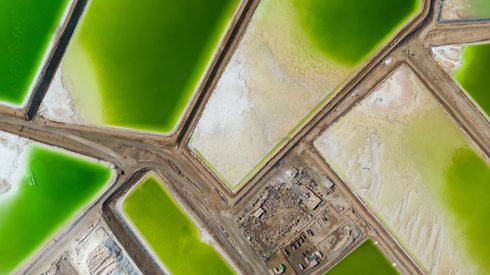The partnership is an example of Ghana’s strategy to create in-country added value as part of a transition to green energy and comes as governments around the world ramp up efforts to develop battery raw materials supply chains.
The agreement will see UK-based CAA Mining explore for lithium at a number of projects in Ghana. If successful, the lithium extracted at the sites would supply a Livista conversion facility in Takoradi in the south of Ghana, capable of processing spodumene to an intermediary lithium chemical, Livista said. The company would then export the intermediary material to its European facility for further refining.
“The narrative globally remains firmly focused on localized supply chains and added value for resource rich countries, and this news bolsters that trend, Daniel Bloor, chief executive officer at Livista, said. “We believe Ghana is well positioned, both geographically and in resources, to make a real difference in the demand for battery metals.”
Bloor added: “Positioning a Livista facility in Ghana to upgrade spodumenes before exporting to our European facility is a win-win for all concerned and we look forward to seeing the exploration progress and new resources emerge to complement what is already in development.”
Livista is in the process of building a standalone lithium chemical plant in Europe which will take multiple types of feedstock including spodumene, crude lithium carbonate and lithium sulphate, either direct from mines or from recycled batteries.
The facility, which has a planned initial capacity of 40,000 tonnes annually of high purity lithium chemicals, is slated to begin commercial production in 2026. Livista also has plans to build a second plant once the first is fully operational.
The collaboration would also be a new step for the African continent, which lacks downstream lithium processing facilities.
Midstream supply chain pressures increasing
Outside of Asia, the choke point in the battery supply chain is undeniably at the mid-tier processing level. Although more processing supply is planned and mining companies have moved further down the supply chain, the midstream value chain that converts raw materials into lithium chemicals still remains under significant pressure.
According to Fastmarkets analysts, expansions in China, Chile, and Argentina as well as new capacity in Australia will see processed supply increase by 37% year on year to 886,000 tonnes in 2023.
Fastmarkets’ assessment for lithium carbonate 99.5% Li2CO3 min, battery grade, spot price range exw domestic China was 460,000-470,000 yuan ($68,203-69,686) per tonne on February 2, down by 10,000-15,000 yuan per tonne from 470,000-485,000 yuan per tonne on January 19.
There are several burgeoning opportunities in Africa on the lithium mining side, however.
Ghana’s first lithium mine is expected to be the Ewoyaa project, operated by Australian-headquartered Atlantic Lithium, funded under an agreement with US-based Piedmont Lithium, and scheduled to start producing in 2025.
The Democratic Republic of Congo has the region’s largest lithium resources base followed by Mali, Zimbabwe, Ghana, and Namibia, according to data from the US Geological Survey, and a number of projects are slated to come into production in the next few years.
Find out more about developments across the battery materials supply chain
Keep up to date and network with market participants across the battery material supply chain at the 2023 Fastmarkets Asian Battery Materials Conference. Sign up for your spot today.






